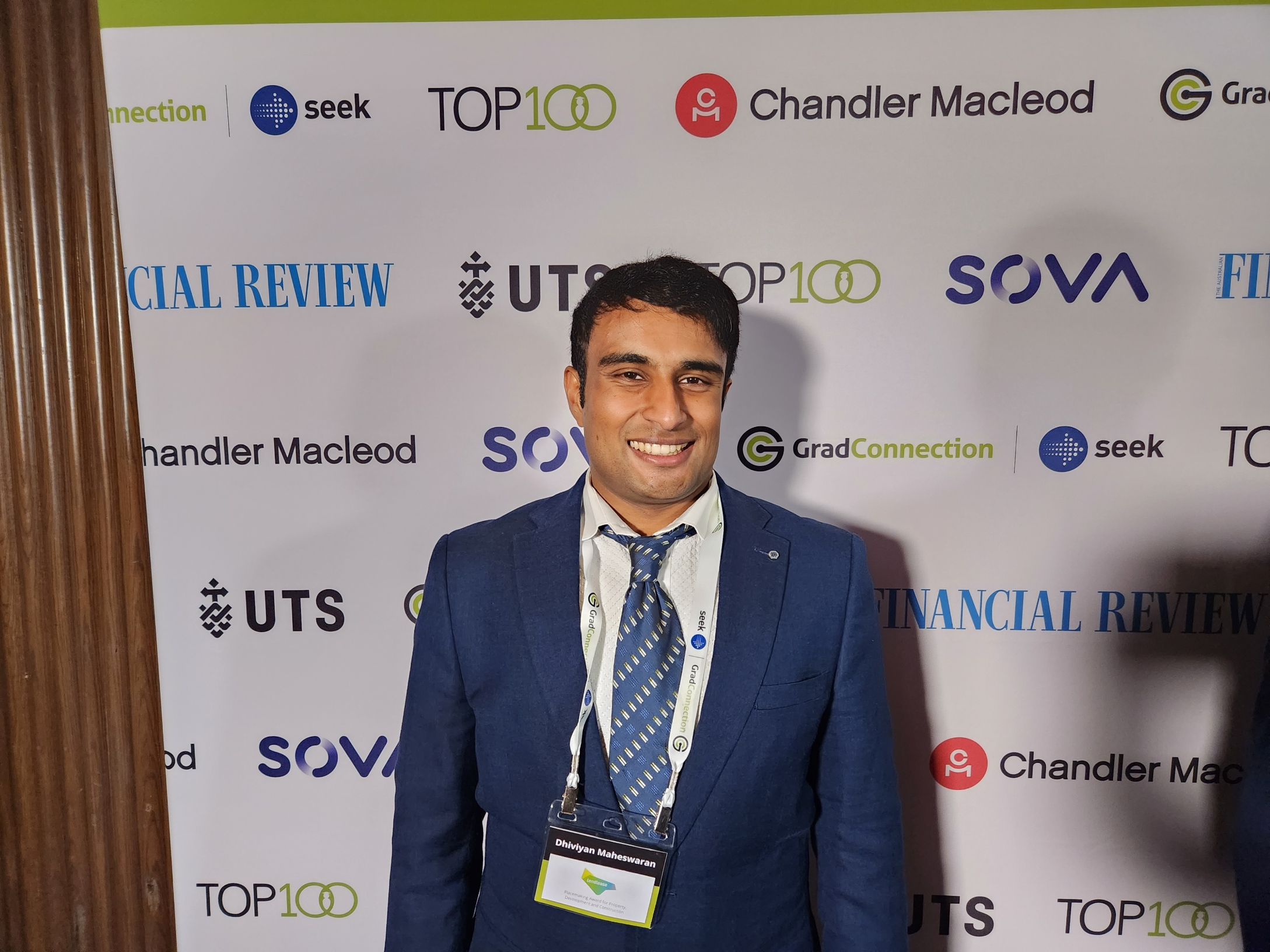Dhiviyan was one of the GradConnections Top 100 Future Leaders finalists last year and is a passionate volunteer for the engineering profession and within his community.
Can you tell us how you got into engineering?
My journey into engineering began when I was playing with Lego and constructing stick forts in my backyard. As I got older, I saw SpaceX land their first rocket in 2015. I was only 15 years old. This heavily informed my subject choices at school. However, when it came to finally selecting what field of engineering to go into for university, I selected civil engineering. Part of the reason for this goes back to those days building stick forts but also a new fascination with the built environment and how structures such as bridges and skyscrapers are built, and how transport systems such as trains, trams and road networks are designed to provide services to millions of people each day.
You were one of the finalists in last year’s GradConnections Top 100 Future Leaders Award. Can you tell us more about this?
The GradConnections competition is designed to identify future leaders who possess key skills in communication, teamwork and lateral thinking. It consists of three rounds and the top 100 participants are flown out to Sydney to attend an in-person assessment centre. The in-person assessment consists of an individual interview and a negotiation and ingenuity game. In this game, you are provided paper, scissors, rulers and pencils and a set of instructions to make specific shapes. But the trick is that no table has the same tools, meaning one table may have scissors, and another table may have rulers, so it becomes a game of negotiating for different resources as well as engineering ways of producing shapes with what limited resources you have.
The next day there is an award ceremony for both individuals and teams that did the best. Those who demonstrated skills in leadership, communication, teamwork and lateral thinking throughout the in-person assessment.
What did you learn from the experience?
As a young engineer, I think we tend to focus too much on the numbers and the equations, but a large part of engineering is also being able to work in teams, lead discussions and use out-of-the-box thinking to solve some of the hard engineering challenges. The GradConnection Top 100 Future Leaders Award was a great opportunity to develop skills I wouldn't normally use in the classroom, such as conflict resolution, leadership and stakeholder negotiation, which I believe engineers need more than ever to deal with modern engineering challenges.
What advice would you give a young engineer in a similar position to yourself?
If you get the opportunity to compete in similar competitions or engineering challenges, I will say just go for it. Throughout my early engineering career, I have found competitions and challenges a great way to push yourself and learn from others. There is the fear of failure but once you can overcome that you start to understand that failure is not something to fear but rather another part of the learning process towards becoming a better engineer, leader and person in general.

